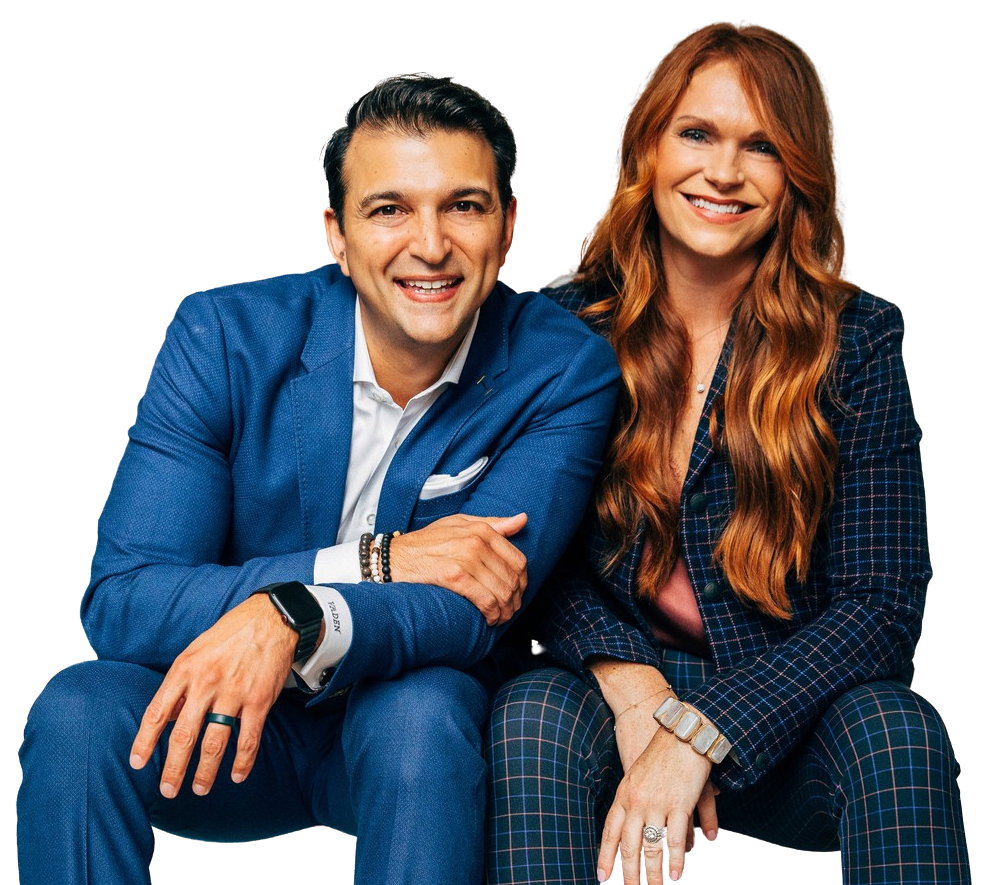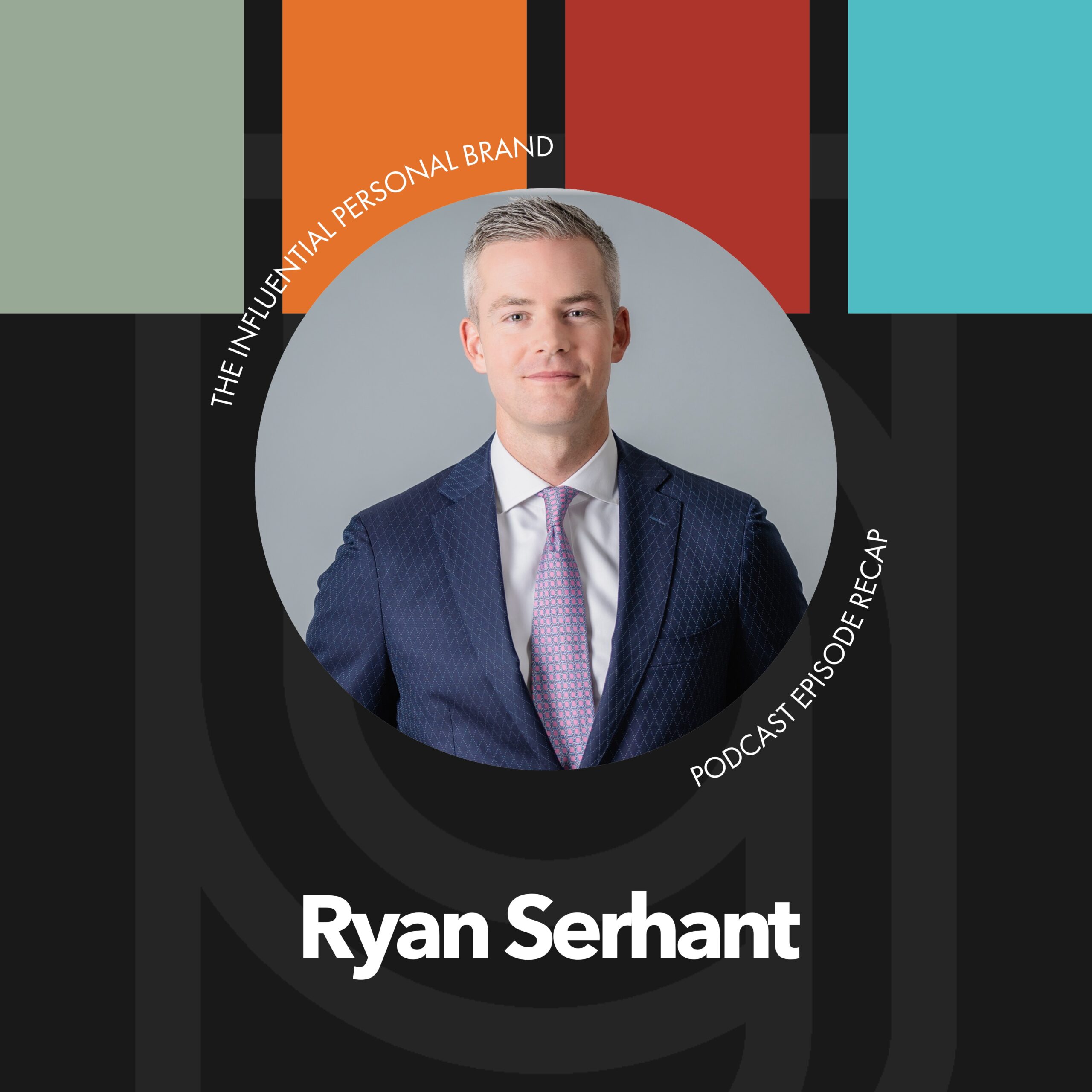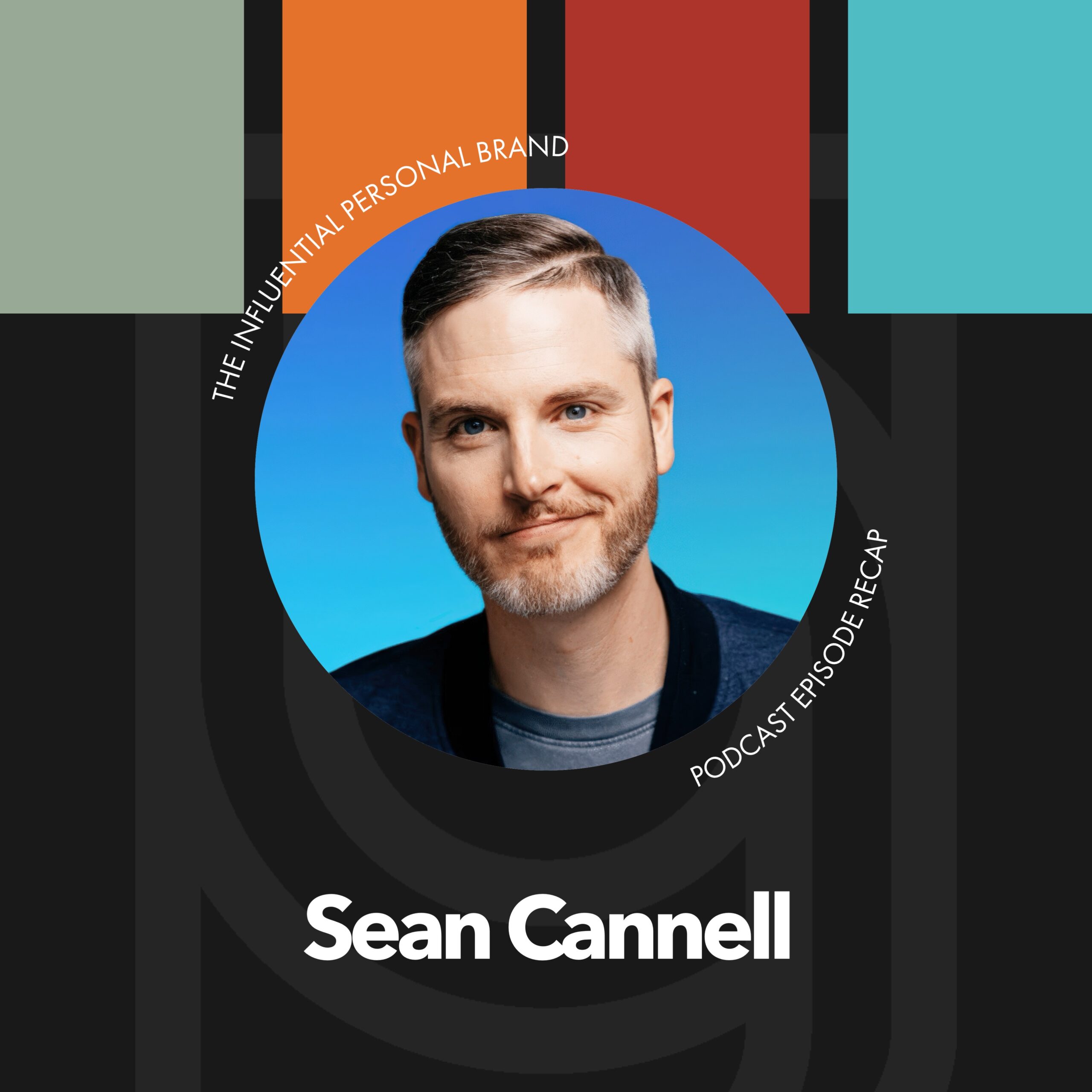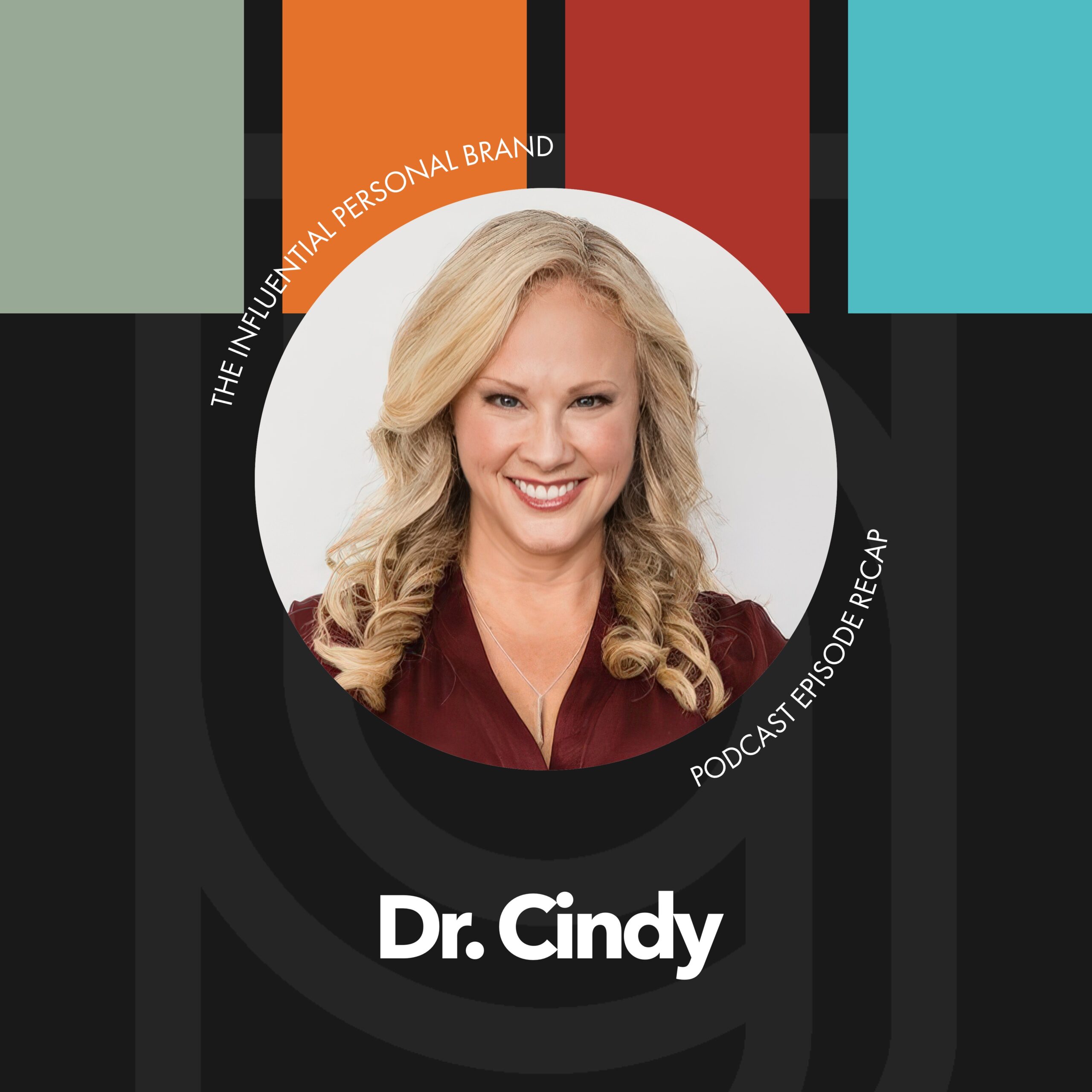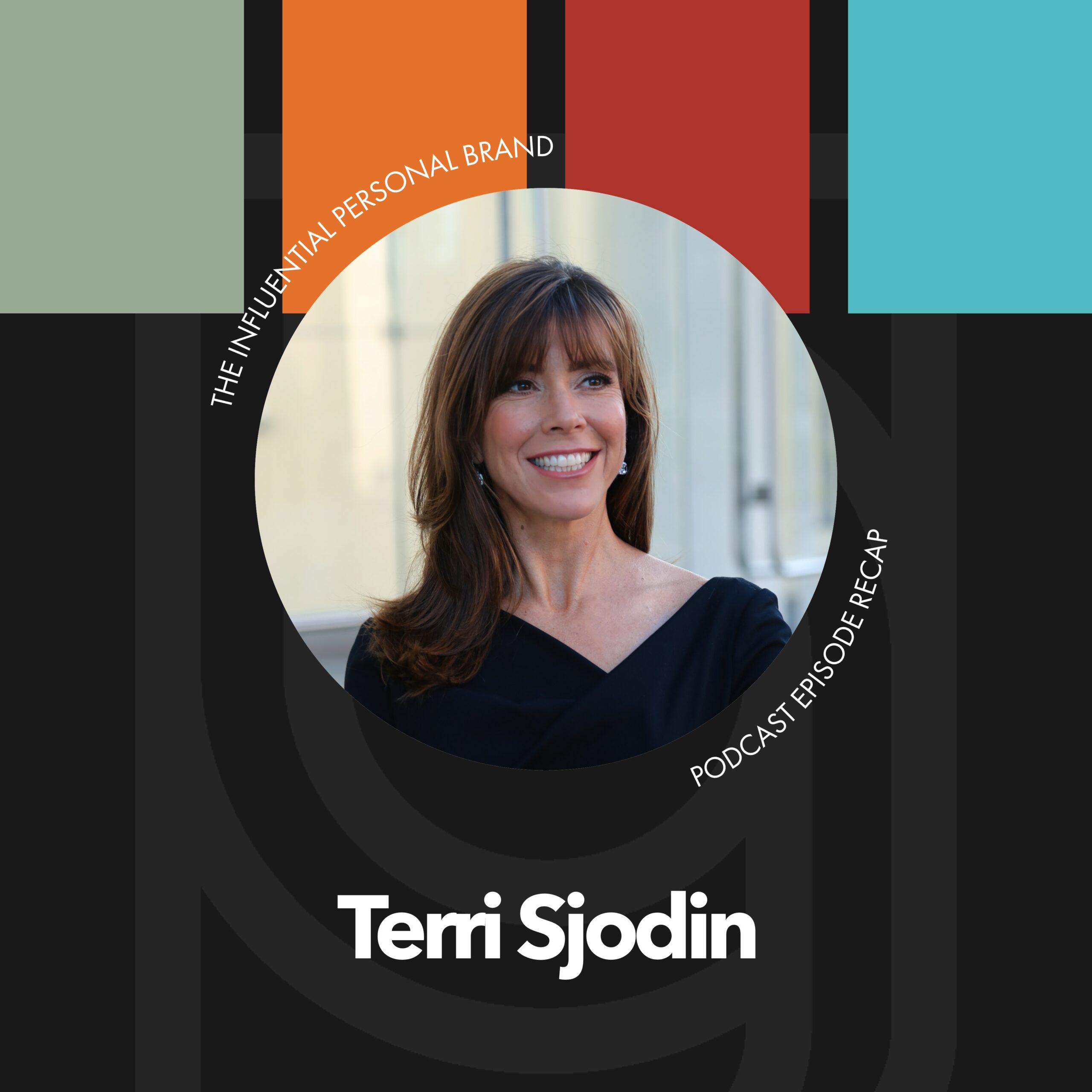One of the things that I just love so much about podcasting is how much you learn as the host. It’s like, it’s one of the coolest things ever. I mean, the networking value of podcasts they get by itself is, is just incredible. But then it’s like, you get to talk to some of the smartest people in the world for free, right? I mean, it’s, you know, you’re, there’s an exchange. You’re helping promote them and stuff, but it’s like, I am blown away at how much I just constantly learn from our guests. And this episode was certainly one of those I’m breaking down. The, this is the recap of the Eric Siu episode. I’m going solo for now and covering for AJ on this recap, a special recap edition of the influential personal brand podcast. But man it’s just wild. And one of the things I love about personal branding, right?
And this whole space is this is such an emerging space. It’s like, it’s fun, it’s new, it’s exciting. Things are changing. It’s also difficult and frustrating because there’s, there’s so much to learn. And you know, my, my top three takeaways from this episode are really important because they tie in to something that has happened since I recorded this interview originally with Eric. Okay. So make sure you listen to the interview. Of course, if you can, if you haven’t, you know, we were talking about basically leveraging up your leveling up your paid traffic acquisition strategy. So in brand builders group speak, this is what we would typically call phase three, which is where we really create a lot of like scalable growth for a personal brand and, and there’s advantages and disadvantages to all different types of traffic. But with paid traffic, this is so important because here’s, what’s great about paid traffic, paid traffic is predictable.
You know, we divide traffic into three categories, there’s free traffic, you know, SEO, email, social media, et cetera, et cetera. Then there is paid traffic, which is a lot of what we’re talking about here, like buying, buying ads and things like that. And then there’s get paid traffic, which is our favorite type of traffic. Cause that’s when you get paid to be put in front of an audience and then you get to expose that audience to more people, which is like, you know, kind of the best of both worlds, but even in get paid traffic or free traffic, the bummer is they’re not predictable. Right? And so this is my first big point is you want predictable traffic, predictable traffic. And this, this is something that, you know, I think when people hear about traffic, we, we think of you know, we think of like, you know, it’s a lot of people wear it as a badge of honor.
Like I’ve never you know, all my traffic is organic or I’ve built my entire following without paid ads, which is, which is cool. I mean, that’s, that’s cool. It’s like, it’s cool thing to be proud of, but what I, and, and, and that’s the category that I have. That’s the camp that I come from and was raised in and have had to operate by, frankly for much of my career. And then realize, well, wait a minute, you know, I’m wearing that as a badge of honor, but is that holding me back because I’m not willing to invest in paid traffic because the only guaranteed type of traffic is paid traffic and it is guaranteed. Like I can guarantee that I can get you more traffic now, whatever organic strategy I teach you, I’m not sure I can guarantee that brings you more traffic.
And, and even though we know a lot about get paid traffic, I think it’s get paid traffic as some brand builders group is some of the best in the world at, at helping you not only get in front of large audiences, but get, get paid to also be in front of them and assess, especially over the long haul over the course of time, if you follow the things that we teach are going to build your reputation, and that’s going to be an upward spiral, that’s going to get you in front of more things, but it’s not guaranteed. There’s not a, there’s not a guarantee as to how fast or when and paid traffic. It gives that to you in the form of a guarantee. And this is a big mindset shift that needs to happen for maturing personal brands. That’s why we, we cover it in our high traffic strategies event, which is our advanced like mail marketing sales event digital marketing event, which we, we put in our phase three group of courses and curriculum.
But and this is the big, the big change is going okay. Well, even though it costs money, it is a, it’s a lever that I can pull every day to force growth, to ensure awareness, to intentionally accelerate my business forward. And so that’s why paid traffic is a good thing. And it’s something that a lot of us don’t think of it in that way. And maybe that’s a mindset shift for you. And I would say again for maturing brands, this is not something that we teach new brands. It’s not something we would encourage for new brands, because we definitely wouldn’t want you to do paid traffic until you’ve got all your other ducks in a row. And all of your, your funnel streamlined and your dashboards set up in your brand positioning clear in a, an unwell optimized website. And you’ve got keyword targeting going on on your, and you’ve got a content marketing strategy that is on, you know, running on autopilot.
Like those are all the fundamentals that have to be in place first and then paid traffic. Boom is fuel on the fire, but to get the most out of your paid traffic, you’ve got to have all that stuff set up first. But once you get there, then it’s like, yeah, we need to, we need to, we needed to pull the trigger on this. So predictable forms of traffic are super valuable and paid traffic is one of the best, if not the best form of predictable traffic, if you put money in the machine, it will send you more traffic, right? So that’s, that is the mindset of predictable traffic, which is related very much to paid traffic and listening to Eric talk, I think was just edifying and validating for, you know, I think an area of growth for me personally, and for our, our team company and where we’re at brand builders group.
And we’re, we’re really getting to this point now, right? Like the, our company has been around for a few years. It’s like, we’re, we’re getting stuff underneath us. And it’s like, let’s grow. Let let’s go. Let’s grow paid traffic. Here we come. All right. The second big debrief, which I think is the core of this interview is the, the importance and some of the tools around influencers marketing specifically. Okay. So the debrief, the reason this is in the debrief is because Eric shared two tools that you know, we have not used. Okay. So don’t consider them vetted and officially recommended yet by brand builders group, but we’re looking into them. Both because, I mean, because Eric said it and, and because they involve paid traffic. Okay. So here’s the tools he said, mighty scout mighty scout.com, which is for influencer marketing research.
And then, but sift tube, SIF like YouTube, but just to sift S I F T tube sift.com for YouTube advertising research. So why am I pulling these out now? Well, this is because of a massive change that has happened recently with the newest iOS update. And this is going to sound a little bit tactical. It is a little bit technical, and frankly, I, I, I don’t fully do geek speak, but this is from what our team is telling us and what our clients are saying. And the people we know that do, you know, speak geek, speak. There’s a massive thing that just happened that is going to affect the future of digital marketing, you know, in a big, big way in the immediate short-term future and potentially long-term. And that is this, that with the iOS update, they are now making people opt in to being tracked.
So if you’re on a mobile device, specifically iOS, okay, if you are using that operating system, right? So everybody with an iPhone all generations that when you’re on a site, whether it’s Facebook or it’s YouTube or wherever else, w you know, any other place that people run advertising and the past there’s been, you know, this kind of invisible tracking going on behind the scenes that was basically reported in the, I dunno, whatever, probably in the terms and conditions. And so by, by way of using this, these various tools, you’re consenting to have it in this happened well, for whatever reason that has changed and IO and, and the iOS update is doing away with that, which means that now people have to opt in manually to allow themselves to be tracked. Well, the, the, the, the data point that I heard this morning, again, I don’t, I don’t have the sources came from my, our internal team, right.
But these are really smart people that we work with. They’re, they’re saying that the, that up to as many, as 60% of people here, these are the people who have already had this change, rolled out to them on iOS are disallowing themselves to be tracked, which makes sense, right? These are like, when you go to the websites and it says, Hey, a pop-up comes up and Hey, we use cookies. Can we track you? Do you care? You know, and some numbers say, sure, I don’t care. I don’t even read it. Yes. But a number of people are waking up to this and going, no, I don’t want to be tracked. Well, the, when that happens, it dramatically affects and radically breaks down the ad tracking that we’re allowed to do using like cookies and UTMs and pixels. And these, these advanced terms that you hear of like passing through which all point back to going, okay, when I’m spending advertising dollars, I’m tracking to where, where are these buyers coming from?
Exactly. And, you know, letting letting like Facebook, as an example, run an algorithm to optimize, to optimize my advertising, spend to go find other people like the people who have bought. But if, if that, if the people who are buying are disallowing me from tracking them, then that disallows the informing to the Facebook algorithm that says, go find me more people like this person, which is, this is potentially huge. And you need to be aware of this, right? So, you know, consider yourself in the know of, for, you know, listen to this podcast and nobody knows exactly what’s going to happen, but from what I’m hearing and gathering, this is a really big deal and potentially a scary deal. For people who depend a lot on paid trafficking on, on, on paid paid traffic. So w w what, what does this have to do with influencer marketing?
Well, good question. Well, the reason that this matters is because as it becomes less easy to track the effectiveness at a granular level of, let’s say like a Facebook, yeah. Add it increases the value of, of spending money and advertising through an influencer, a specific person. Why? Because we know we can track every single thing that comes through that one link. Like I give one link to an influencer, I pay them, they post it. And everything that comes from that is trackable. It’s measurable. We know it came from that person. Well, we may not know about that, the end user data, but we know that all of the traffic came to that link. Well, that is really it interesting because it allows us to determine more, more naturally and more clearly the ROI versus some of these other tools like dumping money into Facebook or into you know, like YouTube or Google ads that it’s, it’s going to be harder and harder to track exactly where they saw the ad and who, and, and you know, how effective it is.
So that places up premium value on running ads through an influencer, because I can track for sure how well that is performing. I paid someone to promote this link. They shared this link, and either it worked or it didn’t which is just interesting because it kind of means that advertising dollars may flow in that direction. This is a, this is a potential trend that’s coming. It’s not here yet, but this is the kind of thing. And it’s good that you’re listening to the podcast. Right. And it’s one of the reasons I host the podcast is I’m interviewing people like Eric, who are very out there in the front of like the technical, you know, in the tactical world, seeing all these things coming and going, Whoa, how do we prepare ourselves? Cause this potentially alters the strategy. And the big thing you need to know now is going, Hmm, I need to really start looking at influencer marketing and going I need to find people that I can pay to just do a post for me.
There’s a lot less red tape. It’s a lot, you know, straight, more straight forward, but you got to find the people. How do you find the people while you could spend all day searching around online for them? Of course. And you’re going to go after the, all the big ones that everybody else sees, or you can, and, or you can use these tools like mighty scout and, and tube sifts. So we’ll, we’ll see how that plays out. But I guess just to share with you, this is on my radar. This is something that as the interim CMO for brand builders group, this is something that we’re watching closely, we’re paying attention and we’re going, you know what I think we need to wake up to, to influencer marketing and start looking at going. We may end up spending our advertising budget influencers rather than just dumping money into Facebook here in the near future.
And we’re going to be possibly looking at tools like, you know, these ones, mighty scout, et cetera, that have been mentioned to help us find those people. So that’s important. And then the last takeaway, you know, just real quick was the, the, what he said, the F he shared the four forms of leverage by novel Rob con two is like a world renowned early investor into several, you know, big companies and things. Uber four square, Twitter Postmates, things like that. So he’s, he’s kind of, you know, recognizes a very, very one of the smartest people in the world, I guess you would say. And he talks about the four types of leverage, labor, capital code and media. So labor is hiring people to do stuff for us. Capital is investing your money. Code is, you know, writing a code for a process.
And then, and then media, well, it reminded me very much of the focus funnel that we talked about all the way back in 2015, right? So if you look at the focus funnel from procrastinated, a purpose, or from the how to multiply time, my Ted talk it’s eliminate automate delegate, well, automate is basically code anything. You can create a process for today, multiplies your time in the future because the process is doing it tomorrow. Code is one example of automation. There are other examples there can be manual processes and, and, and checklists and workbooks and training manuals. Those, we would all consider those forms of automate, even though they’re not code or technology, but it’s really powerful to hear somebody like, Neval talk about this and go, wow. If he’s thinking that way, we’re really on the right track with the concept of multiplying time.
And then with labor, which we call delegate, right? Which is that it’s 80% done right by someone else is always better than a hundred percent done right by you. Why? Because it multiplies your time. It means they’re doing it instead of you doing it, which gives you margin to do something else without compromising the thing, getting done. That is a form of leverage. He calls it labor. We call it delegate capital money is one that we’ve all been aware of, right? It’s just, you know, compounding interest, let your money work for you when your money starts making money while you sleep. That is a form of leverage. And then I think the new one, which I hadn’t woken up to. So clearly until Eric said this even though he’s quoting and I hope, I hope I’m saying that name right. And of all, I don’t actually follow him.
But I, I, I might now his media, which is interesting, right? Because you know, I’ve described and I’ve heard, I’ve heard this described with money that when you invest a dollar, it’s like basically hiring an employee and then that is working if, when they’re invested to make you more money, right. So that person’s out there working well, media is the same thing. If I post a video on YouTube or I create a podcast episode that is now an asset that is out there working, it’s a form of multiplication. You multiply time by spending time on things today that give you more time tomorrow. So I’m building an asset right in this very moment, recording this, that somebody could be listening to years down the road drawing value from. And they’re just meeting me for the first time, but I’m leveraging an asset that I created, you know, today infinitely into the future indefinitely in the future.
That is super duper powerful. And then I would say, you know, another one that it made me think of is relationships. Relationships are multipliers. Why? Because as I develop relationships with people, okay, so this is like a new form of, of multiplication, not in the focus funnel and not something that Nepal talks about. But as I started thinking about this more relationships are a multiplier. Why? Because if I have a relationship with somebody and that person starts to multiply, that person’s influence grows. Now, all of a sudden as that person’s influence grows, mine grows too because of my connection to them. So this is where it’s like, you have to pour into relationships, you have to serve people and help people, which you should be doing anyways. But if you, if you can’t do it for like, you know just being a good person, you should also realize wow, that there is actual, amazing, exponential value in these relationships. So keep pouring into people, keep serving them, keep coming back here. We’re, we’re doing our very best to create consolidated ideas, tactics, strategies, and wisdom to help you multiply your message. Thanks for tuning in. We’ll catch you next time on the influential personal



